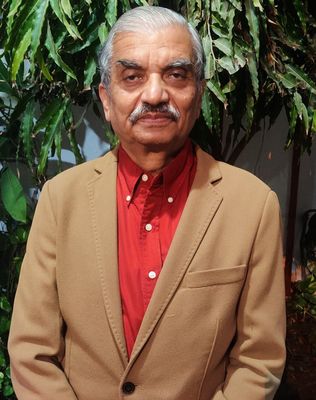The second wave hit India despite the vaccine rollout. And, vaccinated people are now getting infected.
The vaccine was never expected to stop any wave, second or otherwise. All the Covid-19 vaccines available in the world right now have this handicap, that they cannot stop transmission of the virus. This is unlike the vaccines for polio or smallpox, which can interrupt transmission and thereby eradicate the disease eventually.
The Covid-19 vaccine will only help in reducing the severity of the disease. Thus, the aim of the vaccination programme right now is, firstly, to reduce the proportion of symptomatic individuals, and secondly, to reduce the hospitalisation and death rate.
Most of those who have got infection after vaccination have had mild symptoms, not requiring hospitalisation. Also, they got the infection because they lowered their guard after getting the shots.
With post-vaccination infections, won't the vaccination drive get a setback as people question the point of taking the shots?
I think the messaging on ‘why the vaccination’ is loud and clear, but it has to be re-emphasised. Vaccines can reduce severity of the infection by as much as 70 per cent. That is almost akin to being hit by a common cold. Otherwise, patients could get into distress and even lose lives.
There is a rising clamour for universal adult vaccination.
There is no value in vaccinating everyone at this stage. The value is in reducing hospitalisation and eliminating fatality. This is why the vaccination programme is targeting those at highest risk, so that we do not end up losing our loved ones.
What, then, do you recommend be done to stop the virus?
The most effective way continues to be to follow Covid-appropriate behaviour. The three-pronged strategy of wearing masks, observing hand hygiene and social distancing are the most effective. Why is wearing masks becoming such a problem? In India, we regularly use the pallu or gamcha (stole or towel) to cover our faces; in urban areas, people use scarves for protection from pollution and sun. Then, why is it becoming so difficult to wear a mask? And, hand hygiene is a good habit to inculcate anyway. I understand maintaining social distancing at all times may be difficult, especially in a country as populated as ours. But we are getting lax with the other two approaches, too.
Also read
When can we ever hope for the transmission chain to break?
Hopefully, by the end of the year, there will be vaccines that are able to intercept transmission.
Among people who have recovered from Covid-19, there are reports of tremors, palpitations and other complications.
There is actually a term for these complications; we call it long Covid. It is the residual impact of being hit by the disease. It is more evident among the elderly who have recovered. We have seen that even those who did not have diabetes or hypertension or respiratory problems earlier do display these after they recover. Here is another reason why the elderly need the vaccine more than others. It is still a new disease and we are learning more as we progress.
Dr N.K. Arora is chairman, Covid subcommittee of National Technical Advisory Group on Immunisation


